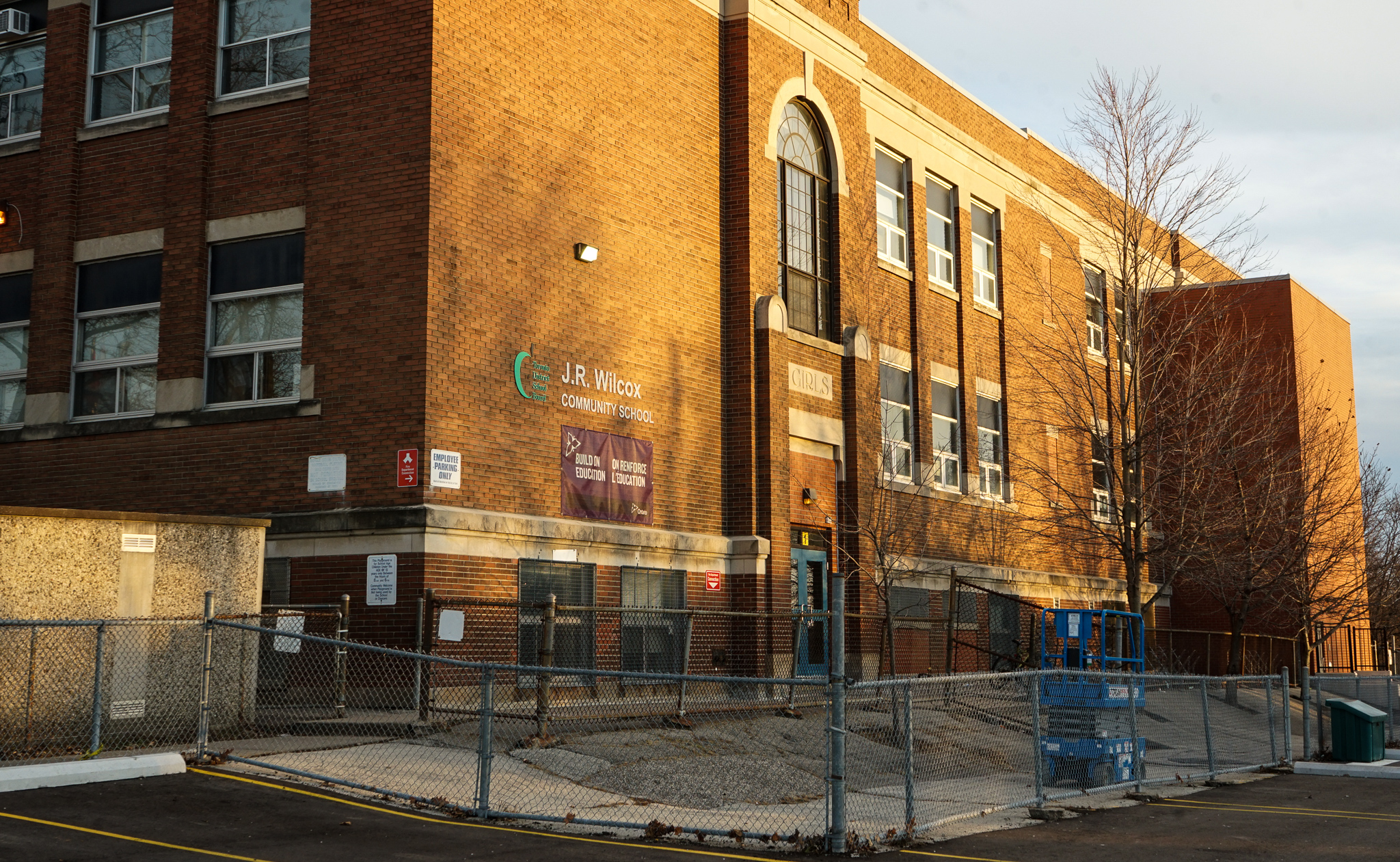School interview: Marit Stiles
School, like everyone else, wants to know what Ontario politicians think about education. While we have written a lot in the last year about the Ford government’s agenda of cuts and more central control of education, there’s a lot more to know. So, why not ask the people most involved about their views on the bigger picture of education? First up is NDP Education Critic, Marit Stiles. In 2014, Marit was elected as a trustee for the Toronto District School Board (TDSB), endured that trial by fire, and ran successfully to represent the downtown Toronto riding of Davenport. She spoke to me on April 1.
COVID-19 Pandemic
Temporarily, I hope, the idea of school has fundamentally changed in the last couple of weeks because of COVID-19 pandemic. What do you think of the Ministry of Education’s response to learning during the time that schools are closed?
We were pushing the Minister to come out with some sort of communication, any kind of communication for the last few weeks because there was quite a vacuum of information for everyone. And I was actually pleased that we had pushed the Minister to meet with education workers because that hadn’t been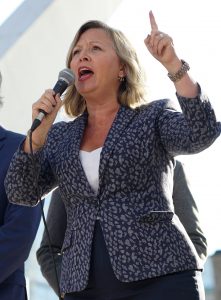 happening. I was glad that he was starting to have those conversations. So, I think it’s good that people have a bit more clarity about that school will continue to be out for at least the immediate term and I’m also pleased that he has communicated expectations.
happening. I was glad that he was starting to have those conversations. So, I think it’s good that people have a bit more clarity about that school will continue to be out for at least the immediate term and I’m also pleased that he has communicated expectations.
But we have lots of questions. I want to understand a bit better where the rationale came from for the hours that they assigned to each grade. That’s something that parents right now are struggling with the concept of – as are students. I think as well, it’s worth asking the Minister to take another look at the issue of how we assess students at this time. For one thing, we know and he’s already said, that there are equity considerations here – accessibility and equity issues around how students will be able to access these resources, what they’re dealing with in the home; what families are dealing with and their capacity. That has to be addressed and I’m not sure in that it will be fair, in the end, to provide grades. I’d like the Minister to explain what the thinking is there.
And I guess the other big piece is that- I know the unions and the federations have been really clear that they are willing to work really hard together – but we all know that many education workers, themselves, will be dealing with challenges, like kids at home, like caregiving and some of them are going to get sick. I think those are some of the big issues that, for me, stood out where there remain quite few questions. I think in this moment we’re all trying be as helpful as possible and look at how we can contribute to a better system for everybody in this terrible moment. But I really just want to get some clarification, some clear answers for people and I hope some reconsideration of some of those elements.
How the NDP is different from other parties on education
What are some of the key issues that have to be faced overall in education?
What the NDP has talked about for a long time, and it’s not news by any means, is the need to address the way we fund education, the structure of funding – what we all call the funding formula. It was something that was imposed in the Harris government years based on a particular calculation and model at a time when the government was also centralizing and defunding. And I think that we’ve seen so many reports, practically every year that explain why these models aren’t working, why this approach isn’t working.
 What’s been really disappointing is to see that, in the period when the Liberals took over, they didn’t listen to those reports either. There were opportunities to really address some fundamental flaws in the way we fund education and that was never addressed. We all know it’s complicated; education funding is complicated. But it needs to be funded based on student need; not based on some outdated formula. What we saw under the Liberals, was continuing to not really fund education adequately, to impose a model of funding that really didn’t acknowledge those needs that slapped band-aids on problems. The problem with band-aids is that they can be torn off really easily and that’s what we’ve seen under this government under the Conservatives with Mr. Ford. They pull off band-aids and it’s a shell game. It’s really hard to follow the funding.
What’s been really disappointing is to see that, in the period when the Liberals took over, they didn’t listen to those reports either. There were opportunities to really address some fundamental flaws in the way we fund education and that was never addressed. We all know it’s complicated; education funding is complicated. But it needs to be funded based on student need; not based on some outdated formula. What we saw under the Liberals, was continuing to not really fund education adequately, to impose a model of funding that really didn’t acknowledge those needs that slapped band-aids on problems. The problem with band-aids is that they can be torn off really easily and that’s what we’ve seen under this government under the Conservatives with Mr. Ford. They pull off band-aids and it’s a shell game. It’s really hard to follow the funding.
So, we need a system that’s more clear; we need a system that prioritizes student needs and I think we have to stop thinking about education as just a spending item on a budget and start actually appreciating at as an investment in our future, as a public good. Certainly, that’s something we’ve talked about in the NDP for many years and I don’t want to oversimplify it, but I do think these are things we have to work at. We shouldn’t be hesitating and I see the implications of that now to fund public health to fund hospitals – our medical services even in good times. The same should be true in education.
Education as a public good
School Magazine argues that the previous Liberal government and the current Conservative government looks at education from the perspective of market economics, efficiency and consumerism. What do you think of that idea and how would the NDP’s view be different?
I think there is a kind of corporate mentality to the way they apply funding and the way they deal with public education to start with. I think it comes out in the language that’s used. The language of corporation, the language of business seeps into the way governments approach education. When a Minister of 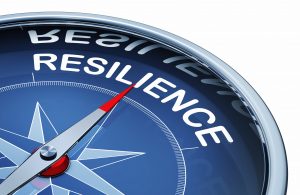 Education talks about building resiliency in students by increasing class size, that tells you a great deal – that wasn’t just a slip up. It tells you a lot about how government views education and also how it views our students and what the outcome needs to be. I think at the end of the day, it sees education as a means to produce employees as opposed to good citizens, good people, well-rounded human beings – dealing with some of the underlying equity issues in our society.
Education talks about building resiliency in students by increasing class size, that tells you a great deal – that wasn’t just a slip up. It tells you a lot about how government views education and also how it views our students and what the outcome needs to be. I think at the end of the day, it sees education as a means to produce employees as opposed to good citizens, good people, well-rounded human beings – dealing with some of the underlying equity issues in our society.
We also see it in the way that this government in particular and past governments too, have failed to address the proliferation of private education. There’s an understanding that, yeah, public education is your kind of bare minimum and if you want bells and whistles, you go outside and pay for that. A lot of people have made a lot of money on that, including past premiers of this province.
So, I think we need to take a totally different approach to the way we do education – a different approach to the way we measure what matters in education. I go back as well to things like standardized testing. Certainly, there’s a place for research in education. But standardized testing really limits our view of what education is, can achieve and what matters.
Looking at your former work as a trustee with Toronto District School Board (TDSB) what do you think is changing in the role of school boards?
Going back to the pre-Mike Harris (Conservative premier from 1995 to 2002 )days, school boards – some school boards – had a fair amount more room to implement programs, to invest in certain areas where they wanted to. I have mixed feelings, to be honest, about that. I think there were some inequities that existed across school boards. But certainly, the way the system works right now allows for very little flexibility for school boards to address their particularly unique needs, especially where they have a very large school population like the Toronto District School Board. To be honest, I think you almost need to take a school board like that in Canada, in North America and separate it out into its own world because it has a completely different capacity than almost every other school board.
I guess what I would say as well, is that the way school boards have been treated – the heavy hand of the provincial government over school boards and their budgeting process in particular, means that school board trustees end up being pushed into a corner every time they get through the budget cycle. Basically, they’re forced to implement some outside government decisions about priorities, implementing cuts often and dealing with shrinking budgets. They look sometimes like they’ve grown a little but they’ve almost never kept up with inflation. So, they’re constantly scrambling to find so-called efficiencies.
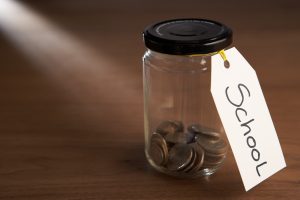
Increasingly also, trustees are forced to be quite removed from the people who elected them. There is a whole other issue there of school board trustees and what the legislation and the government says is their role or their purpose and what people in their communities perceive to be their role. I don’t think I have to tell you this; it is certainly the most undervalued elected role in Canada in Ontario. Having been a school board trustee, I can tell you, it is an extraordinarily important job. The decisions that school board trustees make are crucial and have a deep impact on the lives of so many families and so many kids in our communities. They have other far-reaching implications; they affect other kinds of community services, access to green space – all kinds of things.
But the tools they’re given, the room they’re given and the respect they’re given are just simply not in keeping with the importance of decisions that they are forced to make. I really believe in the elected role of school board officials, but I think we need to find ways to empower them, to respect the role they play to make sure they are properly paid and supported. Again, I think if we could rejig the way we fund education in the first place, it would give school boards more opportunities to be able to make the decisions that address the specific needs they have in their communities.
When all the COVID-19 spending is over, there will be massive budget deficits on all fronts. Do you think the Ford government will cut education and other services to make up the loss?
One of the last times we went through a major recession was back in the NDP government days. The NDP got criticized a lot for making decisions like increasing social assistance rates by, like 22 percent in the middle of all that. I think that, yeah, we’re going to have a lot of tough choices to make down the road. I think that there’s a lot of us out there hoping that maybe this will change the way we think about the importance of investing in public services.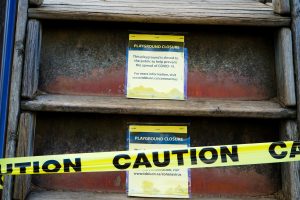
But I think that the neoliberal, the conservative approach will be as it always has been – to cut, to find so-called efficiencies and savings. As it always has been, it will be the most vulnerable people who suffer the most. So public education, which is really the bedrock of our democracy and our society is going to be at risk like everything else. I hope that’s not the case; I hope that we will have really learned something.
Last week, when (the government) put out its mini-budget – it’s an unusual time and we didn’t expect to see everything you would normally see in a budget – there was no acknowledgement of what we’re going to need to invest in the public education system when we return to school. No matter what happens between now and then and no matter how many parents, teachers and students can actually meet the expectations the minister has put out there, there is going to need to be remediation. There is going to have to be significant investment in guidance counsellors, extra teachers, smaller classrooms, in special needs, in assistance for students – and for education workers – to bring everybody back up to speed. That alone, the fact that it’s not something anyone wants to talk about now – it really worries me.
Privatization
What is your view on the Ford government and privatization?
I think we saw the first whisper of that back in the first few months of this government’s tenure, when they released the Ernst and Young report which looked at an initial overview of the where the government could find savings generally, or “efficiencies.” On the education line what drew my attention right away was the reference to looking at other models. There are absolutely other models in the United States like charter schools and voucher systems. We have seen some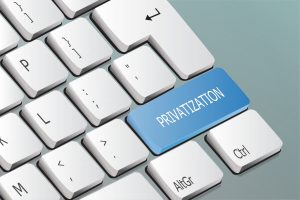 indication of it from this government and certainly it is consistent with their general ideology of wanting to support “parent choice.” I think that this is all code – again, we’ve seen it happen in the United States – for a proliferation of a charter of voucher school model. That worries me because it is about privatization and degradation of public education. I also think we see it in other areas.
indication of it from this government and certainly it is consistent with their general ideology of wanting to support “parent choice.” I think that this is all code – again, we’ve seen it happen in the United States – for a proliferation of a charter of voucher school model. That worries me because it is about privatization and degradation of public education. I also think we see it in other areas.
We never really did get to see what the government was planning to do with their mandatory e-learning plan, but we do know that there are a lot of companies that make a lot of money off the development of systems like that, some of which already have relationships in our school system and are looking to expand their opportunity. I think the government sees it that way. It’s part of their ideology of supporting business and corporate interest.
So, there are lots of opportunities to further privatize the education system and I also think that now it’s another thing we’re going to have to watch for. As we head out into this massive economic crisis – it will probably take years for us to come out of it – there will be a lot of pressure on government and they’re going to be looking for ways to find additional investment under the guise of bolstering the economy by helping business. I think we have to be extra vigilant around that creeping privatization in the education system.
I wouldn’t expect Doug Ford or Stephen Lecce to change their thinking about privatization through e-learning and maybe other tools like a voucher system and charter schools.
Yes, and it’s always in the guise of choice- this kind of libertarian thinking – we want people to have choice. We’ve already seen as well, that privatization in education creeps in, in all kinds of ways. We know many families, because the education system wasn’t meeting the demands of their kids, especially kids with special needs or with any struggles at all, are seeking outside assistance. There’s also the proliferation of so-called private credit mills. We’ll continue to see that unless government actually gets tough and shifts its focus. Under this government, I don’t have a lot of hope in that. But I hope we come out of this in a way that we see people come to appreciate even more, the value of public education, the value of the work our professional educators do.
Is there anything you would like to add, that we haven’t have covered so far?
I would just say one of the other areas I worry about – I hope maybe this will change and maybe moments like this will provide an opportunity for government – is listening to expertise, following research. That’s something I will credit the previous government for having at least attempted or seemed to attempt to do. We really need to get back into that. This government has basically disbanded most of that research work that was going on and it’s so critical in education. When they talk about 21st century learning, everything they’ve talked about seems more like 18th century learning. It doesn’t seem to have evolved. They’re not listening to the experts, the people who really know education and have been studying and experiencing education, working in classrooms like the frontline people. So, I think there’s an enormous amount of work that needs to happen.
We have a great public education system but we’ve allowed other forces to dictate for us what public education should be. And I think we need to go back and listen to the people who have the expertise to make our system great.

This interview was edited for length.

